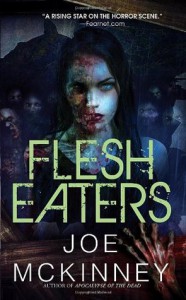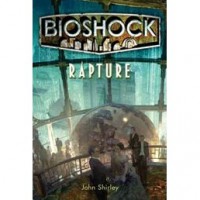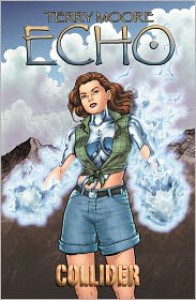Currently reading
 It's not bad but I got about 1/4 into it and it was feeling like another mostly generic zombie novel.
It's not bad but I got about 1/4 into it and it was feeling like another mostly generic zombie novel.
 I enjoyed this story, though I'm always a bit sad to think of Holmes or Watson outliving each other (it's given away on the book jacket).
I enjoyed this story, though I'm always a bit sad to think of Holmes or Watson outliving each other (it's given away on the book jacket). The book contains minor spoilers for ACD canon.
I like the idea that you can tell a lot about a person by the art in their home. I was amused that apparently what you can tell about Holmes is that he can't be bothered to put up his own art and he just lives with whatever was there before.
I was less pleased by the notion that Holmes is better at everything including medicine. Watson is, after all, a doctor. Being bested there just smacks of the "Watson is stupid" problem which sometimes crops up in Homles fanon. If Watson was really stupid there's no way Holmes would keep him around, desire for an audience or no.
It was nice to see a little bit of Watson showing Lestrade as being not as one dimensional and useless as he's sometimes portrayed in ACD canon.

I liked this book. I continue to adore Malcom and Reynolds for obvious reasons.
I thought the CIA spy element was interesting but I don't buy Heat or anyone marginally competent thinking they can just put someone involved in that world in with the general population and think it'll be fine.

The problems I have with the book are mostly character based.
Shaw does everything he can to save those under his care and stresses the importance of family. But then at the end he basically abandons them. I also don't think his reason for wanting to get Eleanor at the end felt right. I would get him going after her for shooting his boy but wanting to get her for knowing about the theft didn't feel like it was explained quite the right way. She is a danger to his family but it's not given sufficient weight.
It also didn't feel right to me that Shaw doesn't feel any remorse at all about attempting to kill someone under his command. That should be a repudation of everything he stood for.
The Eleanor is weak thing at the end didn't make sense to me either. It's true she's (rightfully) afraid of the hurricanes in the beginning of the book. But she's not just cowering in fear. She has a concrete plan of action and emergency preparedness kits for her family. She goes out into the storm to rescue their neighbor. Later on she saves her husband who had confronted a dangerous drug addict by himself (and he resents her superior ability to act in a dangerous situation). Basically she's portrayed as a strong but flawed person. Then suddenly at the end Shaw is constantly thinking of her as weak and decides she's somehow changed. Her husband also thinks she's changed and somehow no longer resents it.
And then there's the part where she takes time in the middle of a zombie outbreak to investigate her boss' son acting suspiciously instead of helping people through the checkpoint even though if they don't make it they'll be zombie chow.
And on top of that, it's obviously bad for the Shaws to steal from the bank but somehow it's cool that she then steals it from them for her family. Apparently her theory of justice is that two wrongs make a right. Or something.
 I enjoyed this book. As an adult I found the explanation of words a bit irritating but I think it was necessary for a younger audience and in that sense I thought it was well done. I did wonder sometimes about the choice of words being explained though. For example, explaining the world "faker" by using the word "feigned."
I enjoyed this book. As an adult I found the explanation of words a bit irritating but I think it was necessary for a younger audience and in that sense I thought it was well done. I did wonder sometimes about the choice of words being explained though. For example, explaining the world "faker" by using the word "feigned." I liked all three children. They have interesting personalities.
 I really liked the magic part of this story. I thought the history of various magicians and tricks was obviously well researched and was very interesting.
I really liked the magic part of this story. I thought the history of various magicians and tricks was obviously well researched and was very interesting.
 I enjoyed this book. In some ways it reminded me of an English Dresden Files. There's an interesting fusion of magic and science which I look forward to reading more about. There's also some delightful humor.
I enjoyed this book. In some ways it reminded me of an English Dresden Files. There's an interesting fusion of magic and science which I look forward to reading more about. There's also some delightful humor.
 Parts of the book were really interesting. The first chapter describes London sinking and how things are constantly being built over to the point where I wasn't surprised a King would turn up under a parking lot.
Parts of the book were really interesting. The first chapter describes London sinking and how things are constantly being built over to the point where I wasn't surprised a King would turn up under a parking lot. The chapters about the subway and how the underground was used during WWII were also interesting.
But almost a quarter of the book is about various rivers that were filled in/polluted and then paved over.
It felt like a lot of subjects were covered very shallowly.
 1
1
 Shirley did a really good job of blending the first and second books. He rightly concentrates more on Andrew Ryan's philosophy than Lamb's. The first game did a brilliant job of weaving in Rand/Ryan's philosophy but it was clearly an afterthought in the second game.
Shirley did a really good job of blending the first and second books. He rightly concentrates more on Andrew Ryan's philosophy than Lamb's. The first game did a brilliant job of weaving in Rand/Ryan's philosophy but it was clearly an afterthought in the second game. This book did a good job of explaining how everything in Rapture came to be. Why the philosophy broke down, how splicers, little sisters, Big Daddies and Big Sisters evolved. The main characters of both games are mentioned but only in passing.
I think anyone who played the games would enjoy it but I think the book could probably be enjoyed even by people who haven't played the games.
 This book is this article expanded into book form.
This book is this article expanded into book form. It was an interesting read, and I did learn some things, like the fact that FDR wanted to institute a maximum wage as well as a minimum wage. But you can get the salient points from the article.
The most important thing I think is missing from his last chapter on how to fix things is the first step, getting the average American to understand how serious the divergence is. Most Americans, when asked, still think the distribution of income is much more equal than it truly is. Most Americans have no idea how limited social and economic upward mobility is. A truly astounding percentage still believe that they'll become rich although you basically have the same odds of winning the lottery. Until you can impress upon people the reality of the situation they'll continue to vote against their own economic best interests. Even people who would benefit from attempts to narrow the divergence in income tend vote against things like an inheritance tax because they think some day they'll be rich and won't want to pay it.
Far too many people believe that if you just work hard you'll get ahead and that the rich don't benefit from government policies. (Ignoring things like corporate welfare or how capital gains are taxed at 15%). I'm not saying that hard work is useless, but there is an abundance of evidence that the gains from productivity increases do not go to workers.
Noah argues that in times past workers saw some benefit because capitalist theory said that workers wouldn't have reason to try hard if they didn't see any positive benefits themselves. He doesn't say that the new view is that workers will work hard whether or not they see direct benefit from gains in productivity because they fear being fired but I think that's what's happening.
I think there also needs to be some incentive for the wealthy to want more income inequality but I don't know what that incentive would be. My theory is that they no longer care if their fellow Americans can buy their products because they can always export them to overseas customers.
 I thought it was okay. It had been so long since I read the last book that I'd forgotten most of the characters, therefore their peril didn't feel as meaningful to me.
I thought it was okay. It had been so long since I read the last book that I'd forgotten most of the characters, therefore their peril didn't feel as meaningful to me. I really didn't care at all for the twist at the end but your mileage may vary.

This book frequently strongly reminded me of Chuck Palahniuk's Haunted. The main character goes into a dangerous, screwed up situation seeking fame. It's the possibility of fame and his own naivete that keeps him there despite the horrors he sees. The thing that distinguishes this book from Haunted is that eventually Dean stays because he can't leave his friends behind.
The actual explanation for what's happening is interesting but doesn't make a whole lot of sense in that there's no reason for it to limit itself to the artificial limits of a particular city for any length of time at all.

I thought this anthology was uneven. There were a few stories that really stood out but most didn't make a lasting impression.
I liked The Lost Boy by Barbara Hambly/ It was interesting reading a story from Mary's point of view. But it was really the idea of a young Sherlock in Neverland that piqued my interest. Perhaps that's why he wanted to be a pirate.
I also enjoyed His Last Arrow by Christopher Sequeira. The premise is fascinating. Sherlock Holmes is literally a dying John Watson's biggest desire. That is, a life full of fame and adventure. But the cost to others is high indeed.
I loved Red Sunset by Bob Madison. I loved Sherlock as an extremely crotchety man over a century old. But mostly I love it because he has a picture of a younger John Watson on his desk and he tells his visitor he only called him John, never his surname. That little touch made it my favorite story of the collection.







